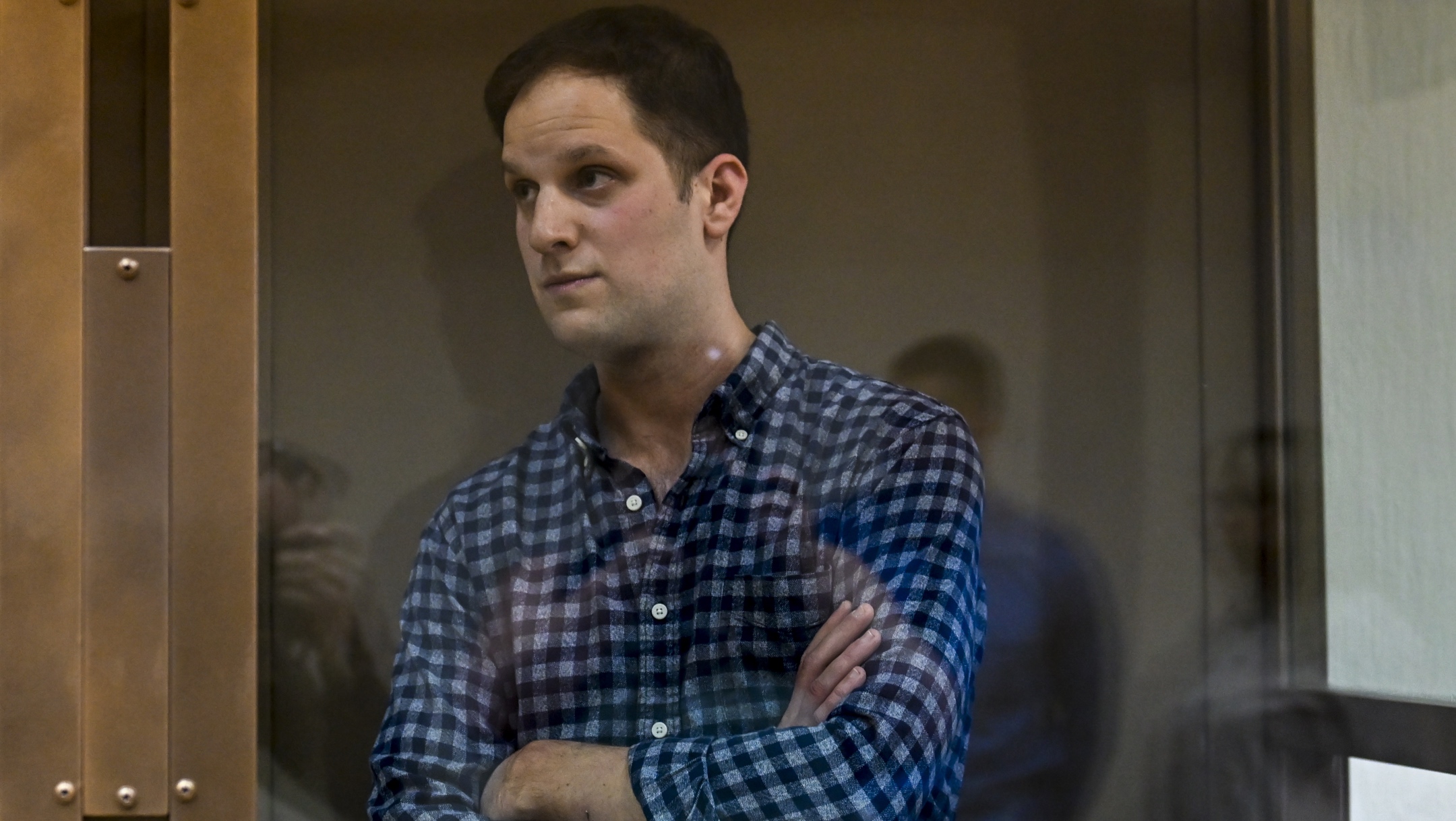(JR) — A Moscow court extended the pretrial detention of Wall Street Journal reporter Evan Gershkovich through March 30, meaning he will have spent at least a year behind bars before his trial begins.
Gershkovich, the 32-year-old American son of Jewish immigrants from the Soviet Union, has been held on espionage charges since March 29, 2023, when he was arrested by Russian agents while on a reporting trip in the city of Yekaterinburg. Gershkovich, the United States government, and the Wall Street Journal deny the allegations, for which the Russian government has not provided evidence. The U.S. government considers him to be wrongfully held.
The Wall Street Journal and its parent company, Dow Jones, condemned the court’s decision, which was made in a closed hearing on Friday.
“It is chilling and outrageous that Evan has now spent 10 months of his life in prison, simply for doing his job,” their statement said. “While these are clearly sham proceedings about patently false charges, we intend to appeal today’s ruling, as we have in the past. Journalism is not a crime, and we continue to demand Evan’s immediate release.”
Gershkovich is the first American reporter held on espionage charges in Russia since the fall of the Soviet Union and the end of the Cold War more than 30 years ago. His arrest came roughly a year after Russia’s invasion of Ukraine precipitated a crackdown on press freedom in Russia.
At his end-of-year press conference in December, Russian president Vladimir Putin made his first public remarks on the jailed journalist, saying that Russia hopes to reach an agreement to release Gershkovich and U.S. Marine Paul Whelan, who has been held in a Russian prison since 2018.
“It is not that we have refused to return them,” Putin said during the four-hour press conference. “We want to reach an agreement, and these agreements must be mutually acceptable and must suit both sides.”
Efforts toward Gershkovich’s release have focused on a prisoner swap, but the State Department revealed in early December that an offer made to Russia to trade prisoners for Gershkovich and Whelan was turned down.
“It is not easy,” Putin added. “I will not go into details, but in general it seems to me that we are speaking a language that we both understand. I hope that we will find a solution.”
If convicted of espionage, Gershkovich could face up to 20 years in a penal colony. No trial date has been set.
His detainment has mobilized the global Jewish community over the past year, drawing interest and support from Jews and Jewish organizations. That support has occasionally echoed tactics used to draw attention to the plight of Soviet Jews decades ago, such as leaving an empty seat at the Passover seder table. Ahead of Rosh Hashanah, the Jewish Federations of North America organized a letter-writing campaign to Gershkovich to mark the Jewish new year.
The U.S. ambassador to Russia, Lynne Tracy, visited Gershkovich two weeks ago in what has now become a monthly meeting.
“Evan remains resilient and is grateful for the support of friends, family and supporters,” the U.S. Embassy to Russia shared on its Telegram account on Jan. 18. “We continue to call for Evan’s immediate release.”




